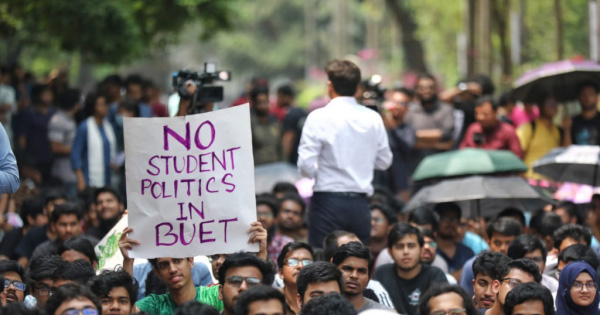The recent fire at the BM Container Depot in Chattogram, which claimed at least 49 lives and injured more than 200, is yet another tragic episode in Bangladesh’s long history of industrial disasters. This catastrophe, involving the explosion of chemical-laden containers, highlights the systemic issues that plague industrial safety across the country. Despite the repeated loss of life and property, the government has failed to take sufficient action to enforce safety regulations, leaving workers vulnerable to avoidable tragedies.
### A Repeated Cycle of Industrial Disasters
Bangladesh’s industrial sector, particularly its garment industry, has long been plagued by negligence and lax enforcement of safety protocols. From the infamous Rana Plaza collapse in 2013, which killed over 1,100 people, to repeated factory fires over the past decade, the pattern is unmistakable. While improvements in garment factories have occurred due to international pressure, other sectors, including logistics and container depots, remain woefully unregulated. The Chattogram fire underscores that safety reforms have been too narrow in scope, addressing only the sectors that generate global scrutiny while ignoring the broader industrial landscape.
The BM Container Depot fire is not an isolated incident; it is symptomatic of a wider problem. In 2021, a fire at a food and beverage factory outside Dhaka killed 52 people, many of whom were trapped behind illegally locked doors. In 2019, another fire in Old Dhaka, exacerbated by illegally stored chemicals, claimed 67 lives. The government’s failure to enforce fire safety standards is nothing short of criminal negligence, and its unwillingness to crack down on industries that cut corners is a betrayal of its responsibility to protect its citizens.
### Where Is the Government Accountability?
The fire at the BM Container Depot was not an unpredictable, random event. With over 600 workers employed in the depot and the presence of hazardous materials, safety should have been a priority. Yet, the government allowed operations to continue in an environment ripe for disaster. There were no meaningful inspections, no stringent safety measures, and no accountability for those responsible for ensuring that such facilities adhere to international safety standards.
Despite Bangladesh’s growing economic importance, particularly in the global garment trade, the government has displayed a shocking indifference to the wellbeing of workers in industries that handle dangerous materials. The container depot housed chemicals like hydrogen peroxide, which exploded violently, shattering windows four kilometers away. The sheer magnitude of this disaster suggests a failure at every level—poor risk assessment, inadequate storage protocols, and insufficient emergency preparedness.
Why were so many workers allowed to work in a facility without adequate safety measures in place? Why was there no enforcement of safety laws or protocols to prevent the storage of hazardous chemicals in conditions prone to explosion? These are not questions that arise in the aftermath of a “freak accident”; they are symptoms of a broken system that prioritizes profits over people.
### The Price of Corruption and Lax Enforcement
Corruption and lax enforcement are the key culprits behind this ongoing cycle of industrial disasters. Monitoring groups and activists have long accused the government of turning a blind eye to unsafe working conditions in exchange for bribes or political patronage. Regulatory bodies that should ensure the safety of workers and enforce strict safety protocols are rendered ineffective by a culture of impunity and bureaucratic inertia. In the case of the BM Container Depot fire, it’s clear that regulations were either nonexistent or unenforced.
These failures are not just institutional but moral. The government has repeatedly demonstrated that it values industry profits—especially those tied to export markets—far more than it values the lives of its citizens. Bangladesh has 19 inland container depots handling 100% of export goods, yet safety oversight is alarmingly minimal. This neglect is especially egregious given the history of industrial accidents in the country. The people of Bangladesh deserve better than to be sacrificed on the altar of corporate profits and corrupt governance.
### Hollow Promises and Delayed Justice
In the aftermath of the fire, depot management has predictably issued statements promising to bear the full cost of medical treatment for the injured and provide compensation to the families of the victims. However, such promises are often hollow. The history of industrial disasters in Bangladesh is rife with examples of victims’ families being left to fend for themselves after initial compensation packages fall through or are bogged down in legal and bureaucratic red tape.
Moreover, even if these promises are fulfilled, they do nothing to address the systemic failures that allowed the fire to occur in the first place. What good is compensation if the conditions that led to the tragedy remain unchanged? The government must not only enforce existing safety laws but also introduce far more stringent regulations to prevent future disasters.
### The Way Forward: Holding the Government Accountable
The BM Container Depot fire must be a turning point. It is high time for the government to take real, concrete steps to ensure the safety of workers in all industrial sectors, not just those that attract international scrutiny. This means more than just enacting new regulations—it means enforcing them, holding employers accountable, and dismantling the corrupt systems that allow unsafe practices to continue unchecked.
Workers’ lives cannot be collateral damage in Bangladesh’s race for economic growth. Industrial safety must become a national priority, with regular inspections, stringent penalties for non-compliance, and swift action against those who put lives at risk. If the government continues to fail in this regard, more tragedies like the BM Container Depot fire will be inevitable.
Bangladesh cannot afford to let its workers bear the brunt of its industrial ambition without ensuring their safety. The government’s failure to protect its citizens is not just a failure of governance—it is a moral failing, one that must be corrected if the country is to move forward as a truly responsible member of the global economy.







